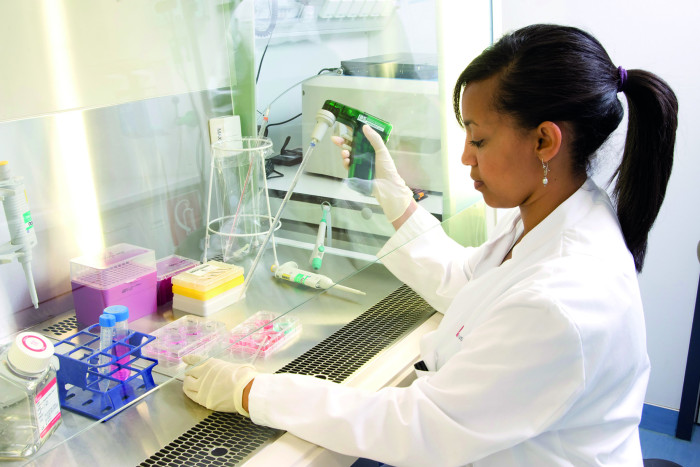- Research Project
German Cancer Consortium DKTK
- Life Sciences

Around 500,000 men, women and children in Germany are diagnosed with cancer every year. Today, cancer is no longer a certain death sentence, but it still kills about half of the people affected, which includes more than eight million people worldwide every year. Research can help in the fight against this insidious disease.
In essence, scientists today are primarily working on transferring the findings from basic research into clinical development: the prevention, diagnosis and treatment of cancer. The German Cancer Consortium, or DKTK for short, has 21 institutions at eight locations throughout Germany. At these locations of the DKTK, scientists, doctors and physicians specifically commit themselves to this "translational" way of thinking.
The University Hospital Frankfurt, together with its partner city Mainz, is one of the translation centers, which, together with the German Cancer Research Centre (DKFZ) in Heidelberg, form the alliance that comprises the German Cancer Consortium (DKTK).
Frankfurt and Mainz complement each other with their respective expertise. Together with the University Hospital und the Faculty of Medicine, the Georg Speyer Haus as the Institute for Tumor Biology and Experimental Therapy, as well as scientists from various natural sciences, Goethe University contributes a particularly high level of competence in the fields of targeted therapy, tumor-stroma interaction, structural biology and drug research. Mainz is known for its outstanding immunotherapeutic approaches, which are pursued at the University Medical Center in close cooperation with the biotech industry and non-academic institutions.




